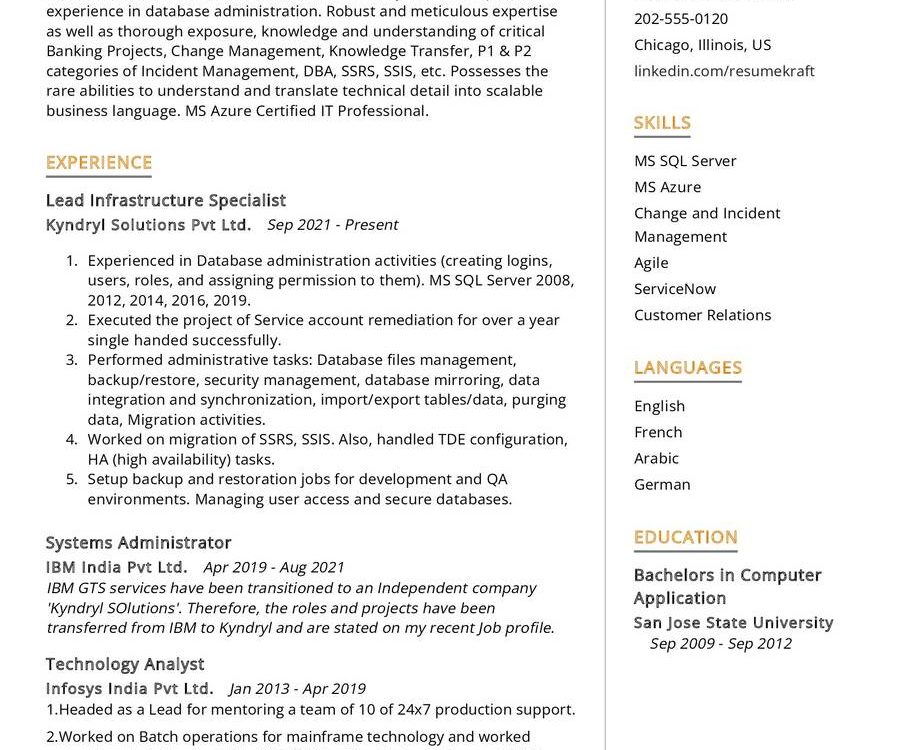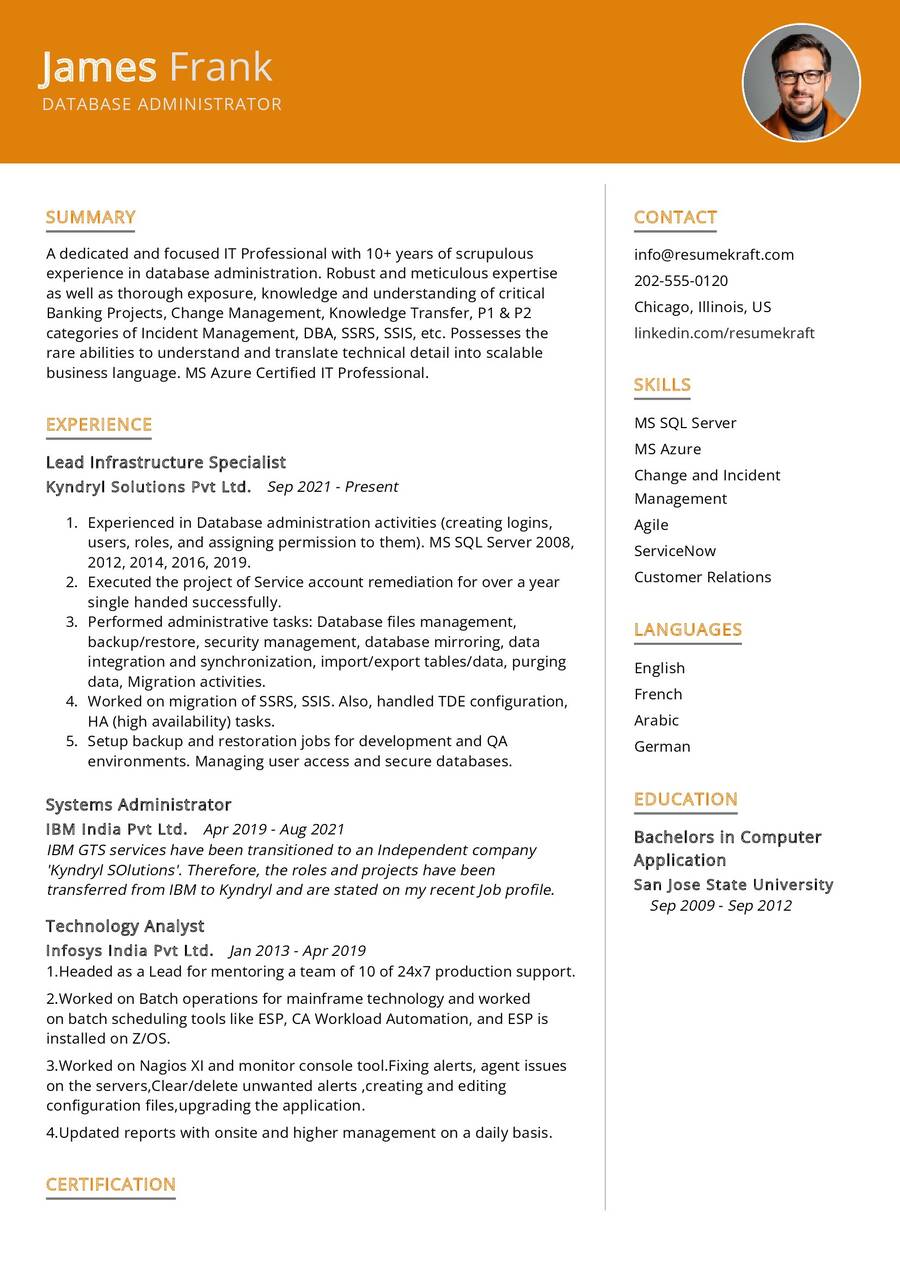The Crucial Role of a Database Administrator (DBA)
In the ever-evolving landscape of information technology, the position of a Database Administrator (DBA) stands out as a linchpin in ensuring the smooth and secure functioning of an organization’s data infrastructure. A harmonious blend of technical prowess and strategic acumen, the role of a DBA is integral to maintaining databases that serve as the backbone of various business operations. Let’s delve into the multifaceted responsibilities and requirements that define the path to becoming a successful Database Administrator.
What is the Role of a Database Administrator?
A Database Administrator plays a pivotal role in managing and optimizing an organization’s database systems. This involves overseeing the development, installation, and maintenance of databases, ensuring data integrity, availability, and security. The DBA acts as a bridge between the technical intricacies of databases and the broader goals of the organization. They collaborate with development teams, IT managers, and end-users to ensure that databases meet business requirements efficiently.
As a leader in the data realm, a Database Administrator is not just a technical expert but also a problem solver and an innovator. Their responsibilities go beyond routine database tasks and extend into strategic planning to enhance database performance and support the organization’s growth.
What are the Database Administrator Job Requirements?
Becoming a Database Administrator requires a blend of education, technical expertise, and soft skills. Let’s break down the key requirements that pave the way for a successful career as a DBA:
- A Bachelor’s or Master’s degree in Computer Science, Information Technology, or a related field, demonstrating a solid foundation in the technical domain.
- In-depth knowledge of database management systems, including but not limited to Oracle, MySQL, SQL Server, or others, depending on the organization’s tech stack.
- Hands-on experience in database design, implementation, and administration, showcasing a trajectory of increasing responsibility.
- Strong problem-solving skills and the ability to analyze complex issues in a database environment.
- Excellent communication skills to effectively collaborate with cross-functional teams and convey technical information to non-technical stakeholders.
- Proficiency in scripting languages like SQL, Python, or others, depending on the specific database technologies used.
- Adaptability and the ability to stay updated with the latest trends and technologies in database management.
Obtaining relevant certifications, such as Oracle Certified Professional (OCP) or Microsoft Certified: Azure Database Administrator Associate, can significantly enhance your profile in the competitive job market.
Responsibilities of a Database Administrator
The role of a Database Administrator is diverse, encompassing various responsibilities to ensure the efficient functioning of an organization’s data infrastructure. Here are some core responsibilities that define the day-to-day tasks of a DBA:
- Database Design and Implementation: Overseeing the design and implementation of databases to meet business requirements and performance standards.
- Performance Monitoring and Optimization: Continuously monitoring database performance, identifying bottlenecks, and implementing optimizations to enhance efficiency.
- Backup and Recovery: Implementing robust backup and recovery strategies to safeguard data against loss or corruption.
- Security Management: Ensuring the security of databases by implementing access controls, encryption, and auditing mechanisms.
- Database Migration: Planning and executing database migrations to new technologies or platforms, ensuring minimal downtime and data integrity.
- Collaboration with Development Teams: Working closely with software developers to understand database requirements for applications and providing necessary support.
- Capacity Planning: Estimating future database capacity needs and planning for scalability to accommodate organizational growth.
Each responsibility requires a combination of technical expertise and strategic thinking, making the DBA a key player in an organization’s data management strategy.
Database Administrator CV Writing Tips
Your CV is more than just a document; it’s a narrative of your journey, skills, and aspirations as a Database Administrator. Here are some tips to craft a compelling CV that highlights your unique value:
- Emphasize your Database Projects: Highlight specific projects where you’ve played a key role in designing, implementing, or optimizing databases.
- Quantify Achievements: Use metrics to quantify your achievements, such as optimizing database performance by a certain percentage or successfully implementing a database migration with minimal downtime.
- Highlight Technical Skills: Create a dedicated section to showcase your technical skills, including proficiency in database management systems, programming languages, and relevant certifications.
- Include Soft Skills: Don’t overlook the importance of soft skills like communication, problem-solving, and teamwork. Mention instances where these skills have contributed to the success of database projects.
- Tailor Your CV: Customize your CV for each application, aligning your skills and experiences with the specific requirements of the job.
Remember, your CV is your personal marketing tool, and crafting it thoughtfully can make a significant difference in the competitive job market.
Database Administrator CV Summary Examples
Your CV summary is the opening act of your career story, setting the stage for what follows. Craft a powerful snapshot of your journey, encapsulating your experiences, skills, and the value you bring to the table. Here are some examples to inspire you:
- “Dedicated Database Administrator with over 8 years of experience, excelling in database optimization and ensuring seamless data management for diverse business applications.”
- “Results-oriented DBA with a proven track record in implementing robust backup and recovery strategies, enhancing data security, and leading successful database migration projects.”
- “Experienced Database Administrator specializing in Oracle and SQL Server, with a focus on performance monitoring and optimization to support organizational growth.”
Your CV summary should be a window into your career, offering a glimpse of your journey, strengths, and vision as a Database Administrator.
Create a Strong Experience Section for Your Database Administrator CV
Your experience section is the heart of your CV, pulsating with the rich experiences you’ve gathered over the years. Narrate your career story, highlighting milestones and learning. Here are some examples to guide you:
- “Led a database optimization project resulting in a 15% improvement in system efficiency, contributing to enhanced application performance.”
- “Successfully managed the migration of a critical database to a new platform, ensuring data integrity and minimal disruption to business operations.”
- “Collaborated with development teams to design and implement a high-performance database for a mission-critical application, meeting stringent performance requirements.”
Each experience is a chapter in your career book, narrating tales of challenges met, solutions found, and successes achieved.
Sample Education Section for Your Database Administrator CV
Your educational journey is the foundation upon which your career stands. Showcase your knowledge, expertise, and commitment to learning. Here’s how you can list your educational milestones:
- Master of Science in Computer Science, XYZ University, 2015.
- Bachelor of Technology in Information Technology, ABC University, 2013.
- Oracle Certified Professional (OCP), Database Administration, 2016.
Each educational qualification is a stepping stone, leading you to the pinnacle of success in your career.
Database Administrator Skills for Your CV
Your skill set is your toolbox, equipped with a diverse range of tools that you’ve honed over the years. Showcase your abilities, both innate and acquired. Let’s list down the essential skills that a Database Administrator should possess:
Technical Skills:
- Database Management Systems: Proficiency in Oracle, MySQL, SQL Server, or other relevant platforms.
- SQL and Scripting: Strong command of SQL for database querying and scripting languages like Python or PowerShell.
- Database Optimization: Ability to identify and resolve performance bottlenecks for optimal database efficiency.
- Data Security: Implementing access controls, encryption, and auditing mechanisms to ensure database security.
- Backup and Recovery: Expertise in designing and implementing robust backup and recovery strategies.
Soft Skills:
- Communication: Effective communication to convey technical information to non-technical stakeholders.
- Problem-solving: Analytical skills to identify and resolve complex issues in a database environment.
- Teamwork: Collaborating with cross-functional teams, including developers and IT managers.
- Adaptability: Staying updated with the latest trends and technologies in database management.
- Time Management: Efficiently managing tasks and projects to meet deadlines and organizational goals.
Each skill is a tool, aiding you in managing databases effectively and contributing to the success of your organization.
Common Mistakes to Avoid When Writing a Database Administrator CV
As you craft your CV, steer clear of common pitfalls that can hinder your journey to landing your dream job. Here are some mistakes to avoid:
- Using a Generic CV: Tailor your CV for each application to showcase your unique fit for the specific role.
- Focusing Only on Job Duties: Instead of just listing duties, emphasize your achievements and the impact you’ve made in previous roles.
- Overlooking the Importance of Soft Skills: Soft skills are crucial in a collaborative work environment. Highlight instances where your soft skills have contributed to project success.
- Ignoring the Importance of a Cover Letter: A well-crafted cover letter is an opportunity to narrate your story and connect with potential employers on a personal level.
- Technical Jargon Overload: While technical proficiency is essential, avoid overwhelming your CV with jargon. Ensure it remains accessible to non-technical readers.
- Failing to Proofread: A CV with errors can leave a negative impression. Take the time to proofread and ensure professionalism in your presentation.
Avoiding these mistakes will help you create a CV that is both authentic and compelling, setting you apart in the competitive job market.
Key Takeaways for Your Database Administrator CV
As we conclude this comprehensive guide, let’s recap the key points to keep in mind while crafting your Database Administrator CV:
- Emphasize Your Technical and Strategic Contributions: Highlight how your technical skills and strategic thinking have contributed to the success of database projects.
- Quantify Achievements: Use metrics to quantify the impact of your work, providing tangible evidence of your contributions.
- Customize for Each Application: Tailor your CV for each job application, aligning your experiences with the specific requirements of the role.
- Showcase Soft Skills: Soft skills are as important as technical skills. Illustrate instances where your communication, problem-solving, and teamwork skills have made a difference.
- Utilize Resources for Success: Take advantage of resources like AI CV Builder, CV Design, CV Samples, CV Examples, CV Skills, CV Help, CV Synonyms, and Job Responsibilities to create an outstanding application and prepare for the Database Administrator job interview.
Your CV is not just a document; it’s a canvas where you paint your career story, a story of growth, learning, and leadership. Best of luck!
Finally, feel free to utilize resources like AI CV Builder, CV Design, CV Samples, CV Examples, CV Skills, CV Help, CV Synonyms, and Job Responsibilities to create an outstanding application and prepare for the Database Administrator job interview.


